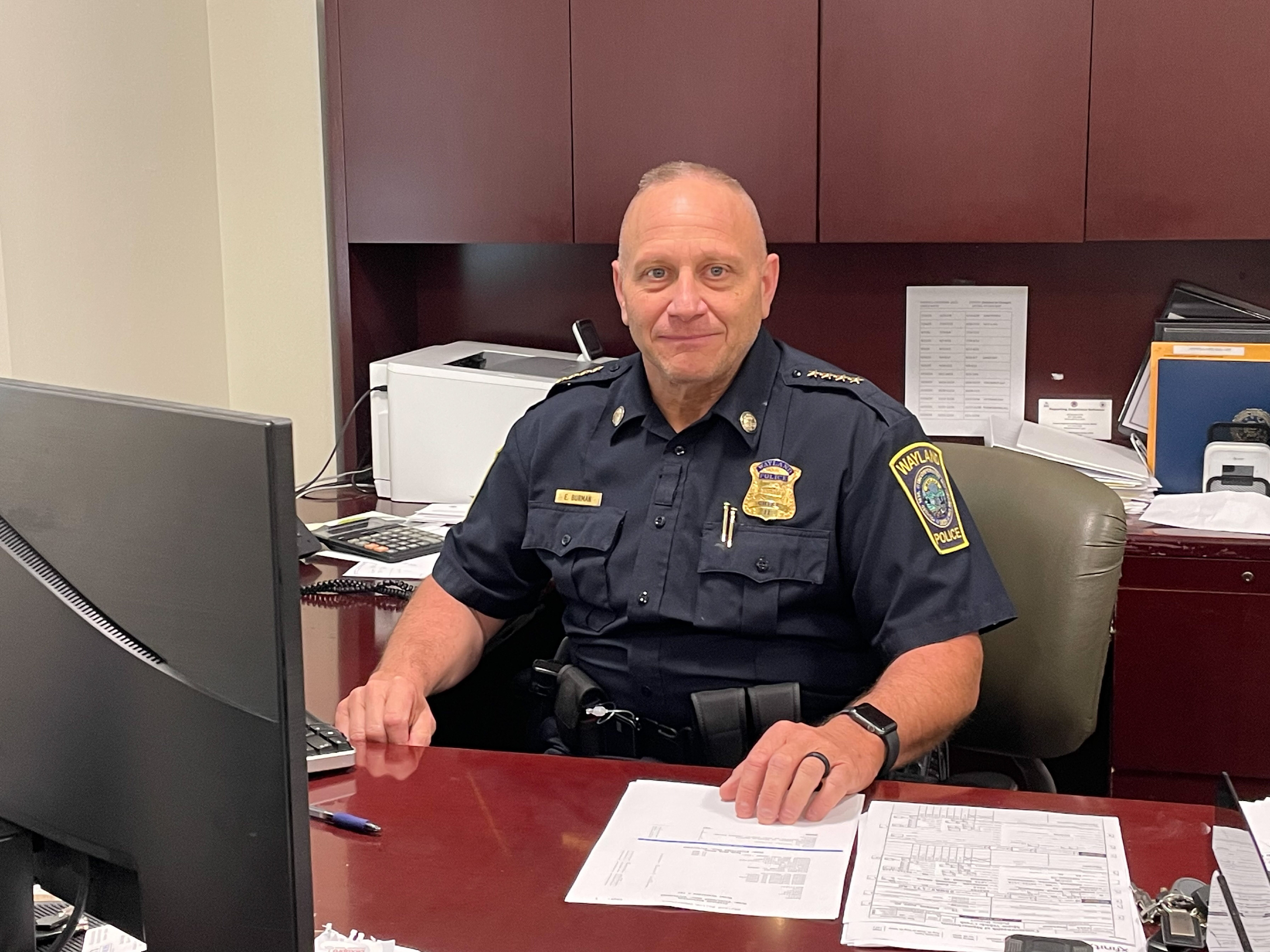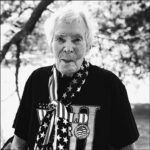“It is a misconception that small towns do not have the same crimes as cities. We have the same crimes, just not the quantity,” said Police Chief Ed Burman in an interview on August 21. “There was a murder here, there are housebreaks and burglaries.”
Although Wayland is ranked as the third-safest town in Massachusetts, Burman said his police force is very busy and is on target for 18,000 calls this year. He said a majority of the calls involve traffic violations and accidents, many of which occur around Route 20. However, there are also domestic violence, identity theft and alarm calls 24 hours a day, seven days a week.
Burman’s staff consists of seven ranking officers, 24 police officers, eight dispatchers, five crossing guards, and one administrator. However, he is in the process of hiring three new officers since there are currently only 21 due to attrition. He said he prefers to promote from within.
Burman’s policing strategy reflects three key themes: transparency, education, and the principle that no call is too small. “We would rather get a call than not get a call,” he said. Some examples he gave are responding to a small fire or a traffic incident in a parking lot. Crucial minutes could be lost if they waited for the fire department to call them when they arrived at the scene. And if police are not called to the scene of a traffic accident, they can’t assist on matters of valid insurance, personal information, and liability.
Transparency is important
“We are a transparent police department,” Burman said. Wayland has a tracking system that lists every call, including the type, names of police and residents involved, and the outcome, including whether a person is given a warning rather than a traffic ticket. The report also identifies the individual’s race to ensure that there is no racial profiling.
The police are required to keep their dash and body cams on when making a call. When an officer activates their blue lights, both the dash cam and body cam are activated. Since he became police chief 21 months ago, Burman said that he has received three complaints about police behavior. When he reviewed the camera footage with each complainant, the grievance disappeared, he said.
Educating police and the public
Burman sees his role as both educating his Wayland officers and residents. In addition to crime prevention and enforcement, police officers receive additional training such as certification for dealing with individuals who have mental health issues. The station also features a simulator that enables officers to practice their marksmanship in complex, interactive, and realistic scenarios. Wayland police carry both guns and tasers, and the simulators help them decide which one to use.
Wayland police issue significantly more warnings than tickets, but Burman feels that’s sufficient. “When drivers are stopped, they remember,” he said.
The police department also offers youth and citizen academies. The youth academy, which took place last week, introduced 30 middle schoolers to the roles of public safety officers. They visited the fire department and a medflight company, learned about drones, and took a CPR class. A similar program is offered to adults each fall.
Burman advises everyone in town to sign up for Code Red Reverse 911, a community alert service that uses the CodeRED platform for mass notifications. It is not limited to Wayland, but also applies to other U.S. locations that use the system when a resident is traveling. To register your contact information, visit tinyurl.com/wpcoderedalert.
Dealing with discrimination
Although there were a few swastika incidents in Wayland, Burman said there were no more discriminatory incidents in Wayland than in other towns in the past year, and that that 99% of such incidents are never solved.
Wayland is attempting to address discrimination with the creation of the Freedom Team (tinyurl.com/wpfreedomteam), a community-based organization formed to promote unity, foster dialogue, and provide support in response to incidents of hate and bias. The team offers a safe space for discussing incidents and fosters a community ethos of love, inclusion and trust. The first Freedom Team was started in Natick in 2016 by Jamele Adams. Wellesley, Franklin, Whitman and Hopkinton also have these teams that can go into action after the town’s police chief first investigates a reported incident to determine if a crime has been committed.
Developing goals
Burman had been working for two months in Wayland as a lieutenant (the second in command) when former police chief Sean Gibbons was placed on administrative leave in 2022 and eventually stepped down after an investigation corroborated allegations of sexual harassment. He previously worked in Ashland and Framingham before getting the Wayland job (a promotion), and was then faced with another choice: “act as a placeholder or move up.”
Burman decided he wanted to assume the responsibility, so once he was appointed, he interviewed everyone in the department to determine what improvements were needed and then developed goals for the department. He evaluated the equipment deficiencies, training and personnel, and hired four of the seven sergeants because four had retired.
His current goals are to replace the records management system, which is nearing the end of its life; update manuals; obtain authorization for two additional police officer positions; and assist in implementing the new regional call system.
The regional call system, which will serve Wayland, Framingham, and Natick, is expected to be fully implemented within two years. Although the three towns have a mutual agreement to assist each other, each town has its own dispatchers. To streamline the process and shorten call time, all the dispatchers will be centrally located in Framingham. The state is encouraging towns to regionalize, as this will cut costs and increase efficiency.















